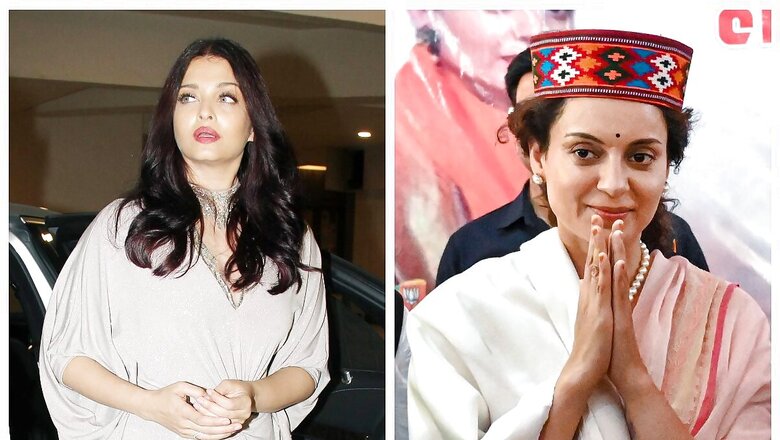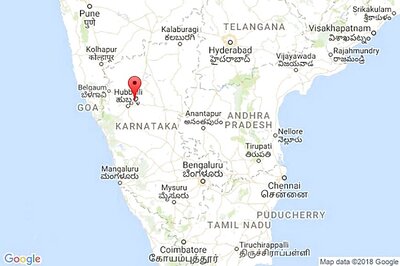
views
Women in cinema have been objectified for years. For this, the film industry should be taken to task, as should the audience – whose tastes the industry caters to, however, there has been a shift in the characters essayed by women on the silver screen. Undoubtedly, female actors have managed to create an audience of their own and are also producing films, apart from investing in other businesses. A certain savvy has been embraced by them, given the fickle nature of the business. However, whilst the audience’s taste and the film industry have evolved, in some measure, politics seems to be stuck in the item girl iteration of female actors, paired with the assumptions that follow.
In the past few weeks the Grand Old Party of India, which claims to be the protector of liberal values, has seen its senior leaders utter such despicable statements about female actors that it has been revelatory.
Commenting on the Pran Pratishtha ceremony, the scion of the Congress party, 54-year-old Rahul Gandhi made a point of highlighting the presence of Aishwarya Rai at the function. Never mind that the fifty-year-old icon was not there, but this didn’t stop Rahul Gandhi from mentioning her repeatedly and embellishing his statement with a condescending comment about her dancing for the audience.
The statement, dripping with sexist innuendo and condescension, completely negated the illustrious and dignified presence Aishwarya Rai has held in the public domain over the last three decades. It is also an understood fact that she will not respond to such public jibes, making her an easy target for crude attacks. It is unclear if Rahul Gandhi, given the contentious past of the relationship between the Bachchans and the Gandhis, has a personal axe to grind or not, given his repeated targeting of Aishwarya Rai, now the Bachchan bahu. She certainly has not been the recipient of any largesse from the present government, even finding herself amid an ED investigation. But the complete lack of respect that Gandhi displayed for her and her profession indicates a deep-seated resentment and anger, towards not only her but the acting profession.
Whilst that commentary was somewhat obtuse, Supriya Shrinate, a former journalist and Congress spokesperson, who runs the party’s social media operation, went a step further and in under 24 hours of Kangana Ranaut joining the BJP and being declared its candidate from Mandi in Himachal Pradesh, made a disgusting comment likening Mandi to a market place, where wares were sold and bought at a preferential rate. The implication was clear. Joining her in this distasteful conjecture was senior journalist Mrinal Pande, who once called out for her cheap commentary, and tried to backpedal.
Shrinate, realising the utter crassness and misogyny of the comment posted from her social media account, passed the buck on to some nameless member of her team, an explanation that no one bought. Kangana, not one to back down from a fight, replied in a calm and measured manner, knowing there was no need to be overly defensive. Shrinate dug herself a hole that she would have trouble climbing out of.
The dust had barely settled on this controversy when Randeep Surjewala, a senior member of the Congress, jumped in with a tasteless and frankly sleazy comment on septuagenarian actress Hema Malini, a multiple-time MP from Mathura. It is not possible to even quote what he said since it was so disgustingly inappropriate. It is alarming that the Congress continues to spout such misogyny about women from the film industry but faces no backlash from their “liberal” supporters.
The film industry is a male bastion and women who work in the field, be it in front of or behind the camera, have a career of struggle and often exploitation. Whilst things are improving, being an unregulated industry, there is still a long way to go. Women who achieve success in this business, do it after much struggle and personal challenges. When they transition to the world of politics, as two of the women mentioned in this article have, they bring with them a celebrity and connect with the public which can take years to build. For others, it puts them at an advantage, but that doesn’t mean it has been easy for them to get to this point in their career.
We often have discussions about more women joining politics, but the open character assassination that follows an entry into the political arena is daunting. Our actresses are used to the gossip media and have had more exposure to conjecture and cheap innuendo, however, the ordinary woman, who views this interaction from the sidelines, feels intimidated and is discouraged from entering politics. The public shaming and humiliation are just not worth it for her and her family.
It is indeed tragic that not only men but women also are indulging in creating an environment that is toxic for other women. Female actors are role models, whilst the audience has matured enough not to ascribe them divine qualities, their achievements and struggles are acknowledged by the public, as is their talent, and with this comes a certain amount of respect. Gone are the days when actresses were viewed as a little more than the ladies of the night, but like in other instances, in this as well, the Congress is stuck in the past.
Advaita Kala is a best-selling novelist and award winning screenwriter. The views expressed in this article are those of the author and do not represent the stand of this publication.




















Comments
0 comment